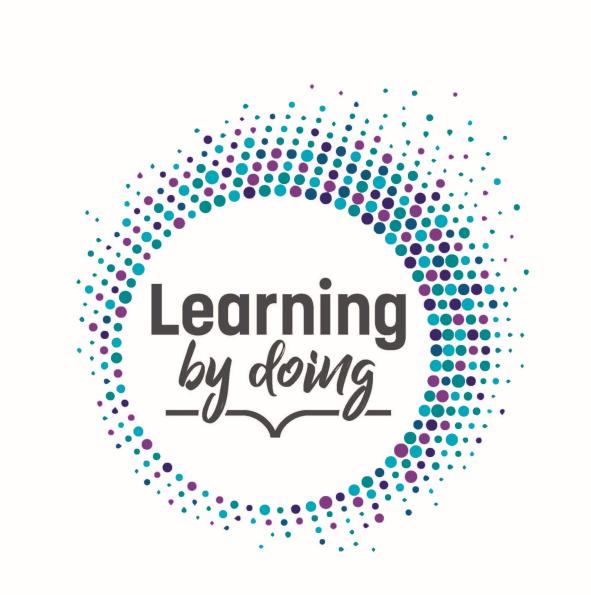Bachelor in Business Engineering
-
Schedule
regular course
- ECTS Credits 180

Your program is based on 6 pillars
First, economics and management. These subjects form the heart of the training. Right from the first year, you'll dive into these subjects and discover marketing, finance, accounting, monetary economics, international economics, strategy...
Quantitative methods and computer science are also an important part of your program. Indeed, to make the best decisions, you need to master and know how to critically apply mathematics, statistics and computer science.
The curriculum also confronts you with the human sciences, with subjects such as history, sociology, psychology and philosophy. These disciplines are essential if you are to better understand the environment in which you will be required to operate and make decisions. The same goes for law, the legal and regulatory framework constraining corporate action and all the managerial decisions you'll have to make.
In a globalized world, knowledge of languages is a must. So, in addition to English, you choose a second language between Dutch, German or Spanish. More than just a means of communication, languages convey a culture, and mastering them is a major asset for any manager.
Finally, the sixth pillar is focused on the sciences and emphasizes, depending on your choice of course, biotechnologies, new materials, IT, social networks or mobile applications.
The sectors
At UNamur, management engineers can choose between two filières.
Environmental and Life Sciences and Technologies (SEV)
This course offers solid training in physics, chemistry and biology that helps you understand complex industrial and technological processes. What's more, specific courses in sustainable management enable you to apply this scientific knowledge to managerial issues linked to energy and climate challenges.

Information Technology and Management (ITM) stream
This course guides you towards computer science applied to management. It focuses on data science (unique in the Wallonia-Brussels Federation), which enables you to collect, store, manipulate, process and analyze mass data in a business-relevant way.
Your program includes courses in programming, mathematics for artificial intelligence and data science, and information systems modeling. These courses help you understand the contribution of new information and communication technologies to business operations.

You're off to a good start
- you're interested in management, innovation and corporate strategy;
- you like technology and scientific subjects;
- you're comfortable with mathematics;
- you're motivated by innovation and have an entrepreneurial spirit;
- you're willing to speak several languages;
- you'd like to benefit from international experience.
Teaching methods
Courses, exercises, integrated projects, company visits... everything is done to ensure excellent mastery of concepts and the development of practical skills.
In small groups, exercise sessions and practical work help you assimilate the material based on case studies and the experiences of company managers. On a self-learning platform, you develop essential digital skills for data management.
Your meetings with professionals confront you with current events and business practice.
You develop your understanding and critical thinking, but also your creativity.
Last but not least... you benefit from real proximity with professors and assistants!

Project managers from high school!
Project-based learning crosses and mobilizes your knowledge of several disciplines around real-life cases.
Like real project managers, you learn to work collaboratively and demonstrate multiple skills:
- from observation, documentary research, source criticism, data collection and analysis;
- to the production of a high-quality report - with, in some cases, an executive summary written in English - which you and your team present before a jury.
To boost your foreign-language communication soft skills, coaching is provided by your language teachers.
Learning by doing |
| Projects play an increasingly important part in your bachelor's course through concrete and diversified case studies of managerial themes : |
IN BLOCK 1:Sector diagnosis project
|
IN BLOCK 2:Entrepreneurial project
OR Globalization and economic interdependencies
|
IN BLOCK 3:Innovation project
|
International experience
Discover the international and multicultural context, learn to manage a project and communicate in another language!
Your studies in management engineering offer you the opportunity to complete two international study stays: one as a bachelor and one as a master, in Flanders, Europe or outside Europe. It's also possible to carry out your master's internship abroad.
Barcelona, Madrid, Milan, Rome, Galway, Tampere, Maastricht, Debrecen as well as the USA, Canada, Brazil, Japan and many other destinations await you!
Success aids
Succeeding in a year of study at university involves many challenges.
To help you meet them, UNamur supports you in developing your disciplinary, methodological and human skills... with the support of numerous professionals.
Preparatory courses, individualized help...
After the baccalauréat: the master's degree
The University of Namur organizes masters programs in management engineering, economics and management sciences. These programs are directly accessible after obtaining your bachelor's degree in management engineering.
The masters in management engineering
Master's degrees in management sciences
A daytime schedule
- The master 120 in management sciences
- The master 60 in management sciences
A staggered schedule
- The master 120 in management sciences, staggered schedule
- The master 60 in management sciences, on a staggered schedule
Master's degrees in economics
On a daytime schedule
- The master 120 in economics
Staggered schedule
-
<unknown>
Code Name Staff Th.+Ex. Credits/Block 1 2 3 Soft skillsEINGB120 Digital skills - beginner Burnay Corentin 15h th. 1 Soft skillsEINGB220 Digital skills - advanced Burnay Corentin 15h th. 1 Soft skillsEINGB320 Digital skills - expert Burnay Corentin 15h th. 1 EIMIB212 Data management and engineering Amaral de Sousa Victor Faulkner Stéphane 30h th. + 15h ex. 4 EINGB301 Data Analytics Deventer Claire 30h th. + 15h ex. 4 -
<unknown>
-
<unknown>
-
<unknown>
-
-
<unknown>
Code Name Staff Th.+Ex. Credits/Block 1 2 3 ECGEB270 Macroeconomics Kiedaisch Christian Latzer Hélène 45h th. + 15h ex. 5 ECGEB170 Economic facts and decisions De Crombrugghe De Picquendaele Alain 45h th. + 15h ex. 5 ECGEB261 Microeconomics Guirkinger Catherine Weynants Stéphanie 45h th. + 15h ex. 5 -
<unknown>
Code Name Staff Th.+Ex. Credits/Block 1 2 3 ECGEB281 Financial and cost accounting Bernal Diaz Oscar 45h th. + 15h ex. 5 ECGEB383 Finance Giot Pierre SOUDANT Joey 45h th. + 15h ex. 5 EINGB333 Operations Management and Business Logistics De Wolf Daniel 60h th. 5 ECGEB284 Marketing Management Decrop Alain 30h th. + 30h ex. 5 ECGEB180 Fundamentals of management Zidda Pietro Guilmot Nathalie 45h th. + 15h ex. 5 -
<unknown>
Code Name Staff Th.+Ex. Credits/Block 1 2 3 EINGB351 Operational research Van Bever Germain Dumont Morgane 30h th. + 15h ex. 4 EINGB314 Econometrics for engineers Béreau Sophie 30h th. + 30h ex. 5 ECGEB252 Probability and Mathematical Statistics Béreau Sophie 45h th. + 22.5h ex. 5 ECGEB251 Mathematics for economics and management 3 Kiriliouk Anna 37.5h th. + 22.5h ex. 5 ECGEB150 Mathematics for economics and management 1 DEHAYE Jérémy 37.5h th. + 22.5h ex. 5 ECGEB151 Mathematics for Economic Analysis I Libert Anne-Sophie 30h th. + 22.5h ex. 5 ECGEB152 Statistics Kiriliouk Anna Soetewey Antoine 37.5h th. + 22.5h ex. 5 -
<unknown>
Code Name Staff Th.+Ex. Credits/Block 1 2 3 ECGEB232 Economic Law Lachapelle Amélie 45h th. + 15h ex. 5 ECGEB130 Foundations of law De Streel Alexandre 45h th. + 15h ex. 5 -
<unknown>
Code Name Staff Th.+Ex. Credits/Block 1 2 3 ECGEB120_P35135 <unknown> De Briey Laurent Ruffo de Bonneval de la Fare des Comtes de Sinopoli de Calabre Marie-Des-Neiges 30h th. + 7.5h ex. 4 ECGEB221 Psychology Buxant Coralie 45h th. 4 ECGEB321_P35178 <unknown> Malvaux Paul 30h th. 3 Soft skillsECGEB322_P35175 <unknown> Rigaux Natalie Pierre Amélie 15h th. + 15h ex. 3 EPICB241_P35194 Organizational Theory Ajzen Michel 30h th. 4 -
<unknown>
Code Name Staff Th.+Ex. Credits/Block 1 2 3 EELVB390 English 3 (level B2) Foissac Patrick Hoorelbeke Christelle 30h th. 3 Soft skillsEELVB190 Anglais 1 (niveau B1+) Dupal Jérémie Bulon Amélie 30h th. 3 EELVB290 English 2 (level B1+ or higher) Hoorelbeke Christelle 30h th. 3 -
<unknown>
Code Name Staff Th.+Ex. Credits/Block 1 2 3 EELVB196 Spanish 1 (minimum level A2) Marsily Aurélie 30h th. 3 EELVB296 Español 2 (nivel B1 o superior) Marsily Aurélie 30h th. 3 EELVB396 Español 3 (nivel B1+ o superior) Marsily Aurélie 30h th. 3 -
<unknown>
Code Name Staff Th.+Ex. Credits/Block 1 2 3 EELVB192 German 1 (minimum level A2) Vanoirbeek Fabienne 30h th. 3 EELVB292 Deutsch 2 (Level B1) Vanoirbeek Fabienne 30h th. 3 EELVB392 Deutsch 3 (mindestens level B1+) Vanoirbeek Fabienne 30h th. 3 -
<unknown>
-
<unknown>
Code Name Staff Th.+Ex. Credits/Block 1 2 3 EELVB181 Kritische benadering van socio-economische onderwerpen Naveau Sophie 30h th. 3 EELVB281 De Vlaamse/Nederlandse bedrijfswereld - interculturaliteit Miceli Marc 30h th. 3 EELVB381 Bedrijfscommunicatie en sollicitatiegesprekken – B2 Hoorelbeke Christelle 30h th. 3 -
<unknown>
Code Name Staff Th.+Ex. Credits/Block 1 2 3 EELVB191 Elementair Nederlands: basisgrammatica, -woordenschat en dagelijkse situaties Miceli Marc Naveau Sophie 30h th. 3 EELVB291 Mondelinge en schriftelijke communicatie in het alledaagse Nederlands Naveau Sophie 30h th. 3 EELVB391 Mondelinge en schriftelijke communicatie op de werkvloer -B1 Miceli Marc Hoorelbeke Christelle 30h th. 3
-
-
-
<unknown>
Code Name Staff Credits Hours/Quarter 1 2 Soft skillsEINGB120 Digital skills - beginner Burnay Corentin 1 15h th. -
<unknown>
-
<unknown>
Code Name Staff Credits Hours/Quarter 1 2 EITGB112 Physics - Fundamentals of Technology and Environmental and Life Sciences HEUSKIN Anne-Catherine Sporken Robert 4 30h th. + 15h ex. EITGB113 Chemistry - Fundamentals of Environmental and Life Sciences and Technologies Vivegnis Sébastien 4 30h th. + 15h ex. EITGB116 Project: sector diagnosis Kiriliouk Anna Verlaine Bertrand Zidda Pietro Latiers Mélanie Vivegnis Sébastien 5 30h th. + 30h ex. SBIOB219 Biology Messiaen Johan 3 30h th. EITGB110 Sustainable management Van Nuffel Nicolas 3 30h th. -
<unknown>
Code Name Staff Credits Hours/Quarter 1 2 EIMIB114 Project: sector diagnosis Kiriliouk Anna Latiers Mélanie Verlaine Bertrand Zidda Pietro Vivegnis Sébastien 5 30h th. + 30h ex. INFOB131 Introduction to programming Frenay Benoît Boraita Amador Fanny 10 60h th. + 45h ex. EIMIB110 Information management Faulkner Stéphane Kolp Manuel 4 45h th.
-
-
<unknown>
Code Name Staff Credits Hours/Quarter 1 2 ECGEB170 Economic facts and decisions De Crombrugghe De Picquendaele Alain 5 45h th. + 15h ex. -
<unknown>
Code Name Staff Credits Hours/Quarter 1 2 ECGEB180 Fundamentals of management Zidda Pietro Guilmot Nathalie 5 45h th. + 15h ex. -
<unknown>
Code Name Staff Credits Hours/Quarter 1 2 ECGEB150 Mathematics for economics and management 1 DEHAYE Jérémy 5 37.5h th. + 22.5h ex. ECGEB151 Mathematics for Economic Analysis I Libert Anne-Sophie 5 30h th. + 22.5h ex. ECGEB152 Statistics Kiriliouk Anna Soetewey Antoine 5 37.5h th. + 22.5h ex. -
<unknown>
Code Name Staff Credits Hours/Quarter 1 2 ECGEB130 Foundations of law De Streel Alexandre 5 45h th. + 15h ex. -
<unknown>
Code Name Staff Credits Hours/Quarter 1 2 ECGEB120_P35135 <unknown> De Briey Laurent Ruffo de Bonneval de la Fare des Comtes de Sinopoli de Calabre Marie-Des-Neiges 4 30h th. + 7.5h ex. -
<unknown>
Code Name Staff Credits Hours/Quarter 1 2 Soft skillsEELVB190 Anglais 1 (niveau B1+) Dupal Jérémie Bulon Amélie 3 20h th. 10h th. -
<unknown>
Code Name Staff Credits Hours/Quarter 1 2 EELVB196 Spanish 1 (minimum level A2) Marsily Aurélie 3 15h th. 15h th. -
<unknown>
Code Name Staff Credits Hours/Quarter 1 2 EELVB192 German 1 (minimum level A2) Vanoirbeek Fabienne 3 15h th. 15h th. -
<unknown>
-
<unknown>
Code Name Staff Credits Hours/Quarter 1 2 EELVB181 Kritische benadering van socio-economische onderwerpen Naveau Sophie 3 15h th. 15h th. -
<unknown>
Code Name Staff Credits Hours/Quarter 1 2 EELVB191 Elementair Nederlands: basisgrammatica, -woordenschat en dagelijkse situaties Miceli Marc Naveau Sophie 3 15h th. 15h th.
-
-
-
<unknown>
Code Name Staff Credits Hours/Quarter 1 2 Soft skillsEINGB220 Digital skills - advanced Burnay Corentin 1 15h th. EIMIB212 Data management and engineering Amaral de Sousa Victor Faulkner Stéphane 4 30h th. + 15h ex. -
<unknown>
-
<unknown>
Code Name Staff Credits Hours/Quarter 1 2 EINGB221 Environmental technologies and sciences Olivier Yoann Houssiau Laurent Sporken Robert 5 60h th. + 30h ex. Soft skillsEITGB217 Project: entrepreneurship Giot Pierre Decrop Alain Béreau Sophie Latiers Mélanie Bernal Diaz Oscar Bernal Diaz Oscar 10 90h th. + 30h ex. EITGB216 Project: globalisation and economic interdependence Trimarchi Lorenzo Cassan Guilhem 10 90h th. + 30h ex. -
<unknown>
Code Name Staff Credits Hours/Quarter 1 2 INFOB234 Object-oriented design and programming Heymans Patrick 5 30h th. + 30h ex. Soft skillsEIMIB215 Project: entrepreneurship Bernal Diaz Oscar Béreau Sophie Latiers Mélanie Decrop Alain Giot Pierre Bernal Diaz Oscar 10 90h th. + 30h ex. EIMIB214 Project: globalisation and economic interdependence Trimarchi Lorenzo Cassan Guilhem 10 90h th. + 30h ex.
-
-
<unknown>
Code Name Staff Credits Hours/Quarter 1 2 ECGEB270 Macroeconomics Kiedaisch Christian Latzer Hélène 5 45h th. + 15h ex. ECGEB261 Microeconomics Guirkinger Catherine Weynants Stéphanie 5 45h th. + 15h ex. -
<unknown>
Code Name Staff Credits Hours/Quarter 1 2 ECGEB281 Financial and cost accounting Bernal Diaz Oscar 5 45h th. + 15h ex. ECGEB284 Marketing Management Decrop Alain 5 30h th. + 30h ex. -
<unknown>
Code Name Staff Credits Hours/Quarter 1 2 ECGEB252 Probability and Mathematical Statistics Béreau Sophie 5 45h th. + 22.5h ex. ECGEB251 Mathematics for economics and management 3 Kiriliouk Anna 5 37.5h th. + 22.5h ex. -
<unknown>
Code Name Staff Credits Hours/Quarter 1 2 ECGEB221 Psychology Buxant Coralie 4 45h th. -
<unknown>
Code Name Staff Credits Hours/Quarter 1 2 EELVB290 English 2 (level B1+ or higher) Hoorelbeke Christelle 3 30h th. -
<unknown>
Code Name Staff Credits Hours/Quarter 1 2 EELVB296 Español 2 (nivel B1 o superior) Marsily Aurélie 3 15h th. 15h th. -
<unknown>
Code Name Staff Credits Hours/Quarter 1 2 EELVB292 Deutsch 2 (Level B1) Vanoirbeek Fabienne 3 15h th. 15h th. -
<unknown>
-
<unknown>
Code Name Staff Credits Hours/Quarter 1 2 EELVB281 De Vlaamse/Nederlandse bedrijfswereld - interculturaliteit Miceli Marc 3 15h th. 15h th. -
<unknown>
Code Name Staff Credits Hours/Quarter 1 2 EELVB291 Mondelinge en schriftelijke communicatie in het alledaagse Nederlands Naveau Sophie 3 15h th. 15h th.
-
-
-
<unknown>
Code Name Staff Credits Hours/Quarter 1 2 Soft skillsEINGB320 Digital skills - expert Burnay Corentin 1 15h th. EINGB301 Data Analytics Deventer Claire 4 30h th. + 15h ex. -
<unknown>
-
<unknown>
Code Name Staff Credits Hours/Quarter 1 2 EINGB315 Technologies and life sciences Dogne Jean-Michel Chainiaux Florence Messiaen Johan 5 60h th. + 30h ex. EINGB316 Resource management Fraiteur Thibaut 3 30h th. + 15h ex. Soft skillsEITGB315 Project: innovation Masset Julie Latiers Mélanie Castiaux Annick Hammedi Wafa Dethier Véronique 10 90h th. + 30h ex. -
<unknown>
Code Name Staff Credits Hours/Quarter 1 2 SMATB254 Graph Theory Franco Nicolas 3 30h th. + 22.5h ex. Soft skillsEIMIB313 Projet : innovation Latiers Mélanie Hammedi Wafa Masset Julie Castiaux Annick Dethier Véronique 10 90h th. + 30h ex. EIMIB314 Information systems modelling Burnay Corentin Amaral de Sousa Victor 3 30h th. + 15h ex. INFOB132 Programming project Frenay Benoît 2 30h ex.
-
-
<unknown>
Code Name Staff Credits Hours/Quarter 1 2 ECGEB383 Finance Giot Pierre SOUDANT Joey 5 45h th. + 15h ex. EINGB333 Operations Management and Business Logistics De Wolf Daniel 5 60h th. -
<unknown>
Code Name Staff Credits Hours/Quarter 1 2 EINGB351 Operational research Van Bever Germain Dumont Morgane 4 30h th. + 15h ex. EINGB314 Econometrics for engineers Béreau Sophie 5 30h th. + 30h ex. -
<unknown>
Code Name Staff Credits Hours/Quarter 1 2 ECGEB232 Economic Law Lachapelle Amélie 5 45h th. + 15h ex. -
<unknown>
Code Name Staff Credits Hours/Quarter 1 2 ECGEB321_P35178 <unknown> Malvaux Paul 3 30h th. Soft skillsECGEB322_P35175 <unknown> Rigaux Natalie Pierre Amélie 3 15h th. + 15h ex. EPICB241_P35194 Organizational Theory Ajzen Michel 4 30h th. -
<unknown>
Code Name Staff Credits Hours/Quarter 1 2 EELVB390 English 3 (level B2) Foissac Patrick Hoorelbeke Christelle 3 30h th. -
<unknown>
Code Name Staff Credits Hours/Quarter 1 2 EELVB396 Español 3 (nivel B1+ o superior) Marsily Aurélie 3 15h th. 15h th. -
<unknown>
Code Name Staff Credits Hours/Quarter 1 2 EELVB392 Deutsch 3 (mindestens level B1+) Vanoirbeek Fabienne 3 15h th. 15h th. -
<unknown>
-
<unknown>
Code Name Staff Credits Hours/Quarter 1 2 EELVB381 Bedrijfscommunicatie en sollicitatiegesprekken – B2 Hoorelbeke Christelle 3 15h th. 15h th. -
<unknown>
Code Name Staff Credits Hours/Quarter 1 2 EELVB391 Mondelinge en schriftelijke communicatie op de werkvloer -B1 Miceli Marc Hoorelbeke Christelle 3 15h th. 15h th.
-
-

Management engineering professions
Analyze, innovate, decide
As managers open to technologies, you rigorously analyze your company or organization's environment to make the best decisions, with a constant drive to innovate.
While mastering the methods and tools of management (finance, marketing, strategy, operations management, etc.), you are forward-looking, ready to lead your staff in bold projects.
Your knowledge of technological processes ensures that you act as an interface between customers, R&D and all other departments within the company.
Your leadership is based on your managerial and technological skills, as well as your communication strengths, which you exercise in several languages: the world is your playground.
The ambitions you develop for your staff, for your company, for society, you approach with impeccable ethics, integrating social, environmental and economic dimensions.
When I had to choose which university I would study at, my choice fell on UNamur. It's a choice I've never regretted: the quality of the teacher-student relationship, a magnificent city in which I now live, the friendliest student life in Belgium... I've invested a lot of time in student organizations, which are a real complement to my university education. In my studies of management engineering, I loved the broad horizon of the training. Personally, I chose the "Information Management" stream, which enabled me to combine technical disciplines with the business world. I was also able to acquire a double Master's degree thanks to the partnership between UNamur and KULeuven. Thanks to the quality of my training, I'm now venturing into a PhD.
Anthony, master's graduate in management engineering, information management
Some examples of professions
The labor market appeal of UNamur's master's courses in management engineering is attested to by the fact that almost 90% of students find their first job within 3 months of graduating. A growing number of students are signing their first contract even before completing their studies.
Because of their special training, management engineers are prime candidates for technology industries wishing to have executives capable of understanding the technological dimensions of business and contributing to their development as new product development managers, IT project managers, intellectual property managers, production managers, consultants....
Their excellent analytical skills, their sense of communication, their knowledge of foreign languages, their international outlook and above all their desire to learn are also important assets for many professions in organizational management: financial services, sales, after-sales, research and development, operations and logistics, IT, business analytics, HRM, marketing... and in a whole range of business sectors: banks and financial organizations, auditing and consulting firms, national and international companies, public and private organizations alike, education, research centers, technology companies, hospitals, cultural institutions, etc.
Finance
The financial sector (banking, insurance, administration...) is the leading employer for our graduates. Every company, from family-run SMEs to multinationals, needs reliable financial indicators to draw up realistic budgets and plans. The range of professions open to those with a passion
for numbers is wide:
- financial analysis: dissecting balance sheets, evaluating credits, advising investors;
- customer advice in a credit organization;
- internal auditing: verifying internal procedures for good governance and generating reliable financial statements;
- external auditing: verification of the quality and accuracy of the financial information provided;
- risk management: the assessment and modeling of all risks likely to weigh on an organization;
- fund accounting: daily calculation of the inventory value of several investment funds;
- etc.
Commerce and distribution
Negotiating, obtaining the best prices, prospecting for new suppliers, monitoring the development of new packaging, optimizing the routing of products to customers... so many missions with responsibilities relating to sales and distribution. Alongside strictly sales-oriented companies such as supermarkets, industries and certain service companies also offer numerous career opportunities in purchasing, marketing and logistics.
Business management
In the industrial world, our graduates take part in all stages of the supply chain : they plan production, arbitrate disputes between salespeople and producers, manage inventories, organize the transportation of goods, etc.
Others exercise their skills in the IT department, for example as part of the implementation of integrated company management software.
Some join the human resources departments and do recruitment, calculate payroll costs, set up skills management tools or a training policy, etc.
After a few years in operational roles, the careers of management academics frequently evolve towards management positions where they participate in the company's strategic decisions.
Sconsulting firms, which specialize in advising companies, place their expertise and technical and human resources at the service of their clients, for example in the field of strategy or the evaluation of internal processes. Many young graduates start their professional careers here.
Finally, entrepreneurship will enable the most daring to build on the solid, multi-disciplinary foundations of their training to set up their own company.
The work of a consultant is organized by projects on which we work in teams. Working in project mode gives you the opportunity to change functions, departments and companies frequently. For example, this year, I worked for a major Belgian bank and a small technology company, among others. I did marketing and financial reporting. I worked with Indian, English, Belgian, French and Dutch people. I was also responsible for a small team. One of the things that makes this job so exciting is the diversity it offers.
Marie, graduate
Research and teaching
Some graduates pursue a research activity in Belgium or abroad. They complete a doctorate or take part in a research program. Several alumni pass on their knowledge in secondary, higher and continuing education.
Job search assistance
The Employment Unit supports final-year Master's students and recent graduates in their career paths, via a number of services: dissemination of job and internship offers, orientation interviews, workshops on themes linked to professional integration, information and documentation on the world of work.